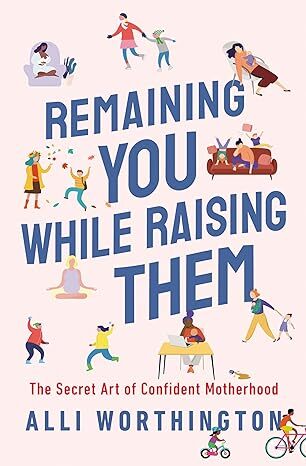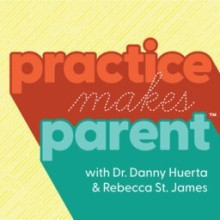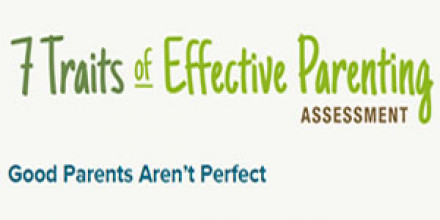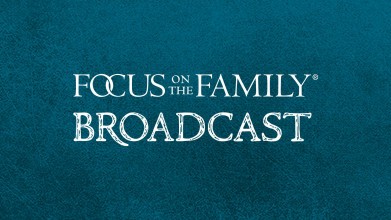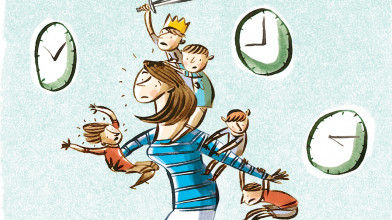Jim Daly: Hello, I’m Jim Daly for Focus on the Family, and I’d like to talk to you about our Option Ultrasound program. For the past 20 years, we have been, you have been, providing ultrasound technology and training to pregnancy centers all across the United States. As a result, more than half a million women who were considering abortion, have chosen to protect the life of their pre-born baby. That’s an incredible milestone. I’m so thankful for the generosity of friends like you who have partnered with us to rescue these precious moms and their children. But the need is ongoing. It’s not over. There’s so many voices in today’s culture who are relentless about abortion rights. And they’re willing to sacrifice the next generation. We can’t let that happen. We need to be diligent. Speak up for life by giving generously to Option Ultrasound. And we’d love to hear from you by June 30th. Donate to focusonthefamily.com/savelivestoday. Or call 800, the letter A, and the word FAMILY.
Alli Worthington: I think it’s important to remember that it’s not a mistake that God has given us the children that we have, that God knew our strengths and God knew our weaknesses, and He gave those children to us. God is not in Heaven looking around going, “I had such great plans for this kid, but the mom is messing it all up,” you know. He knows what He’s doing. He, we will do stuff wrong, we will make mistakes, we will look and our friends seem like they’re doing everything wonderfully, but it’s okay because God gave us that child to raise knowing full well we’re not going to do everything perfectly.
John Fuller: That’s Alli Worthington, offering hope and help for moms on today’s episode of Focus on the Family with Jim Daly. Thanks for joining us. I’m John Fuller.
Jim: John, in my years of walking together with my wife Jean as parents, one thing I’ve clearly seen is that moms need encouragement.
John: Mm-hmm.
Jim: I mean, definitely. Dads do too, but moms really need it because they own it. They are so into their role, typically, as being Mom and making sure things are flowing right, the home is in the right spot, that all the pieces are moving in the right direction, and life just isn’t like that (laughs). I mean, there are zingers that come flying through every day.
John: Mm-hmm.
Jim: Uh, last time we talked about how parenting is rarely going to be perfect, but putting God first is critical, and casting off those societal pressures of social media. Alli’s written a great book, Remaining You While Raising Them. I think the title says it all. It’s brilliant. And, uh, we really touched on some good stuff, so if you didn’t see it last time or listen last time, go to the website, get the download, get the smartphone app-
John: Mm-hmm.
Jim: … you get access to the full library, very easy way to listen. And I think, as a mom or a husband, you’re going to learn a lot from what Alli has to share.
John: Yeah, there should be a lot of lean-in time here together (laughing). Uh, Alli Worthington is a speaker, a business coach, uh, the host of The Alli Worthington Podcast, and, uh, her credentials include being a mom of five boys. Uh, she’s got a lot of experience as a mom, obviously, and she’s captured that experience and her insights in that book that you referenced, Jim, Remaining You While Raising Them. And you can stop by our website for more details. That’s focusonthefamily.com/broadcast.
Jim: Alli, welcome back (laughs).
Alli: Thank you. Great to be here.
Jim: Let me, uh, kind of go after what John just said, when, you know, the moms listening out there and, and he’s talking about your website, your coaching, you’re an author, oh, yeah, okay, and she’s a mom of five boys. I mean, oh, she’s already got it all together.
John: Superwoman.
Jim: Yeah. That’s kind of the impression that might’ve given a lot of women. Uh, speak to it. I mean, you’re juggling a lot of things, so how, how have you become so successful and become an author and a coach and all those things, while raising five boys? Are you nuts (laughs)?
Alli: Well, I, I went the long way around it. Quick background, I spent the first 10 years of being a mom, uh, staying home with the boys and loving it. And we, in the summer of 2007, when I had four boys, my husband lost his job, we kind of joked that we lost everything before everyone lost everything in 2008. By the time 2008 came around, we, he still didn’t have another job and we ended up losing our home to foreclosure four weeks after I had our fifth son and we-
Jim: Wow, that’s pressure.
Alli: It was tough. We lived with my grandfather for the summer, and we would go to a McDonald’s Playland every day and let the kids play, and my husband would apply for new jobs. And I had this laptop that my husband had bought me that year with missing keys on it, and I would Google, “How do you start a business on the internet?” And I knew that God was moving me into a season of building a business to be able to bring in more income for the family. End of the summer, my husband gets a new job, we move into a house, and I start, with the kids who are still at home, ’cause we definitely had that baby, that newborn, I just started working on building my business slowly, even though I had little kids at home, in the off-hours.
Jim: Yeah.
Alli: So slowly, through the years, it built. Now they’re all in school, so now it’s all super easy.
Jim: Yeah, (laughs) it’s a little easier.
Alli: Yeah. But it was a long journey to get here.
Jim: I would, for the variety of stages in motherhood-
Alli: Mm-hmm.
Jim: … speaking to that mom that was more your early stage-
Alli: Yeah.
Jim: … there’s an adequacy in being a stay-at-home mom, a work-at-home mom, whatever term we want to use.
Alli: Mm-hmm.
Jim: And, you know, so often we hear that rather throwaway line, that this is the most important job, but my goodness, it is-
Alli: It is.
Jim: … raising the next generation. And I, I just think that’s so critical for moms to hear, particularly who are making that sacrifice. Some dads are staying at home, I get that, um, but generally, it’s Mom that’s going to be there. Speak just to that honor factor, if you would, for a moment, because there’s so little of that given, it needs to be said.
Alli: Oh, absolutely. It is such important work to make a child feel loved, to teach them about the world, to be there for them, um, to, to teach them the practical things and the fun things and to teach them about God as they get older. It is hard work. It is difficult on a day-to-day basis if you look at the details of the day, I mean, to put it lightly, it’s difficult, but then you zoom out, uh, and you get a little bit of space from those years and you go, “That was the greatest joy. It was so amazing.” However, on a day-to-day basis, every mom out there with babies or toddlers, you know what I’m talking about, it is a grind to get through the day. And if you’re listening to me talk right now, going, “I don’t feel joyous in the day-to-day. This just feels really hard and I feel like I’m failing,” totally normal. That’s the feeling that we all feel when we’re in it because it is hard.
Jim: Well, and that’s one reason I’m sure you wrote the book-
Alli: Yeah.
Jim: … to give those women, particularly those moms, encouragement. You say in the book, uh, (laughs) Wonder Woman could be the most terrible mother of all. That sounds counterintuitive. Wonder Woman is Wonder Woman. Why would she make the worst mom (laughs)?
Alli: Well, we have this idea that to be a good mom we have to do everything right. And I love Wonder Woman, I love movies, Wonder Woman’s my girl (laughs), but if Wonder Woman raised kids, they would not see her make mistakes. She would be amazing all the time. She wouldn’t get angry sometimes and have to apologize. She wouldn’t forget to pack a lunch and then, you know, you have to buy lunch. She wouldn’t do all the stuff that real moms do, and if that’s the case, her children would be completely unprepared for life. They would never have to extend grace. They would never have to develop empathy for someone else. They would never have to … uh, they’d never get to watch their mom make a mistake and then make it right and then, um, reconnect with children. Those are important gifts. If we did everything right, we’re actually stealing that opportunity for kids and then we’re putting kids out in the world with zero ability to deal with disappointment.
Jim: Yeah, it’s so good. I think, you know, too, one of the things that we really haven’t touched on, the spiritual nature of this-
Alli: Yeah.
Jim: … the, the Lord’s call for a mom. I mean, there’s a big spiritual element to doing this and to training your kids in the way the Lord would want them brought up, right?
Alli: Oh, absolutely. I’ll tell you, it did a lot for me with my relationship with the Lord when I became a mom because I never truly could understand how God could love me no matter what I did until I had a little toddler shaking his fist at me ’cause he was so angry. And I would look at that toddler and go, “You just need a snack and a nap and a hug and you’re going to be just fine.” I never once thought, “Well, look at that toddler being angry at me and making bad decisions. I guess I don’t love him anymore.” It’s ridiculous. And so, once I understood that, I realized that God is looking at us, going, “I love you so much. I realize you’re going through it right now. You need a snack and a nap (laughing) and a hug and you’re going to be just fine.”
Jim: That’s good.
Alli: It’s, it’s such an honor to get to raise kids and understand more God’s love for us with that love that we have for our kids.
Jim: And in the book, you talk about myths. Let’s knock some of those myths down.
Alli: Yeah.
Jim: One is that good moms can do it all. I think that, man, that is so deeply ingrained in moms, that, you know, “To be a good mom, to get the A grade, I’ve got to do it all, and then not really complain about it.” Um, speak to that myth.
Alli: Well, that’s how Aunt Shirley ended up as Aunt Shirley. I mean-
Jim: Right. Last time, we talked about Aunt Shirley.
Alli: Yeah (laughs).
Jim: Yeah, but, yeah, that’s-
Alli: Yeah. What happens is, when we think we have to do everything perfectly, we end up not taking care of ourselves, because we not only have to take care of our kids, we have to take care of ourselves. If we don’t take of ourselves, we slowly become resentful, and then we slowly become bitter. And we can smile and, quote-unquote, do all the right things, but that will leak out all over our families, and our kids will, will get it. And our daughters will learn that they shouldn’t take care of their- themselves, and our sons will learn that women don’t take care of themselves and women are just, quote-unquote, grumpy. Well, we’re grumpy ’cause sometimes we forget to take care of ourselves. So thinking that we have to do it all leads to us pouring everything out of an empty cup and never filling it back up.
Jim: That resentfulness, that’s a powerful enemy tool, if I could put it that way-
Alli: Yeah.
Jim: … because, uh, you’re, you’re wanting to do the right things, but for the wrong reason, and then it builds up and you, and that resentment will probably crash in somehow, someway, an explosion of anger or outburst or something is going to happen. So getting that right, wanting to do these things from a pure heart, is probably the right direction (laughs) to go, not probably, it is.
Alli: It is. And from a very practical perspective, we have to learn to do less and expect less of ourselves. One thing about having five sons is, after son number three, I went, “I can’t do half the stuff I used to do before. It’s lo-, it’s logistically impossible. I don’t have enough time in the day. I can’t say yes to being the room mom. I can’t do … there’s just too many children.” And so that gave me the confidence to go, “Oh, I can do these three things really well. These are the majors I’m going to major in, and all of the other things …” Like I would love to be the mom who is the room mom. I would love to make a bunch of homemade cookies for everyone and do all the extra things, I didn’t have enough time in my day. And if I had forced myself to do the things that I didn’t have the space or capacity to do in that season, I would have been really resentful of that.
Jim: Yeah, and I, I can speak from experience. I mean, Jean did do the room mom thing-
Alli: Mm-hmm.
Jim: … and she was really busy. We only had two boys, we didn’t have five, but, you know, what she noticed is there were only two moms that would step up. And that lasted from (laughs), you know, kindergarten through sixth grade-
Alli: Yeah.
Jim: … same two moms would do everything, do the dance, do the whole bit.
Alli: Mm-hmm.
Jim: And, uh, you know, I think that took a little bit of the shine away from that. It was more like a tedious to-do.
Alli: Mm-hmm.
Jim: She enjoyed it, and she got a lot of satisfaction out of doing it, but I can remember her just expressing concern, “Where are the other moms?”, you know (laughs). It’s like everybody took a step backward (laughs) and, uh, she got it done.
John: This is Focus on the Family with Jim Daly, and our guest today is Alli Worthington, and, uh, she’s bringing some great heart and insights into the mom process. Uh, the role of mom is so important, and there’s so much pressure. Uh, get a copy of the book that Alli has written that has so much of what we’re talking about and, and much, much more. It’s called Remaining You While Raising Them: The Secret Art of Confident Motherhood. We can tell you more when you call 800-A-FAMILY, or stop by focusonthefamily.com/broadcast.
Jim: I was laughing at this one. In the book, you had an example of joining a marathon group of women who were non-runners.
Alli: Mm-hmm (laughs).
Jim: I mean, that’s like oxymoronic, I mean, right (laughs)?
Alli: Yeah, it was a good friend of mine, yeah.
Jim: What was she thinking?
Alli: Uh, she wanted to give it a try. Yeah.
Jim: Okay. So what happened?
Alli: Uh, it went really, really badly (laughing). She ended up hurting herself terribly (laughs).
Jim: I can see all us dad couch potatoes going, “Yeah, let’s start a group, a running group (laughing).”
Alli: Well, it was one of those great lessons in her life she was telling me about where she had decided she was going to go all in on running a marathon, which I don’t know why anyone would want to do. God bless anybody who-
Jim: That’s over 26 miles, by the way.
Alli: Yeah. I, I would drive it in support and hand out Gatorade, (laughing) that’s what I would do. But it really became this lesson for her in she needs to do small steps to get her where she needs to go, as opposed to throwing ourselves in. And for us as moms, there are all these big things we want to do, and when we think, “Oh, I’m going to do this big thing over here, I’m going to do this big thing, and this is where I want to go with the family,” we can really throw ourselves off. Me, one day, I decided we were all going to become healthy, so I threw all the junk food out of the house. Uh, you know, we’re having sprouts all the time, no pizza. We’re eating differently.
Jim: Five boys, that went down well (laughs).
Alli: Yeah, it, it did not go well at all. Uh, th-, my husband just went out for pizza, and they were like, “We’re not going to do this.”
Jim: We’re going with Dad.
Alli: Yeah, exactly. So for me, I kind of took that lesson that, that she took in, in learning how to make big changes in making little steps is, you know, instead of completely reworking our dinner, I just add an extra vegetable, and maybe in two months, I do something else. And in three months, maybe I don’t buy the Oreos every week, but they’re a special treat every once in a while. So you can take your family where you want that family to go long-term, but little bitty changes tend to be how it works best.
Jim: That’s a wise mother, ’cause we want to eat healthy-
Alli: We do.
Jim: … I don’t want to give the wrong impression, but, yeah, give a little over time.
Alli: Uh, I still haven’t gotten anyone else to eat sprouts with me, (laughing) but one day.
Jim: Oh, I’m with your boys (laughing). Those things are disgusting. They taste like rubber (laughs).
Alli: Little bit, little bit.
Jim: They taste like chewing a tire (laughing). All right, but cover it in onion and, you know, butter-
Alli: Amen.
Jim: … and then spit the sprout out, but, (laughing), yeah. Hey, uh, you have, uh, a phrase in the book, uh, the magic question habit, which caught my eye. What, what is that and how do moms benefit from asking it, or knowing what that is?
Alli: Yeah. The magic question is what do I need right now? I mentioned on the last show, if you ask a mom, “What do you need?”, every mom says, “I have no idea. I haven’t thought about myself in years.” But when we get in the habit of just putting a Post-it note on our mirror in the bathroom every morning, going, “What do I need right now?”, we are honoring ourselves in a way that I feel like God would want us to, because I feel like He does want us in touch with our emotions and our needs, ’cause, if we’re not in touch with our emotions and our needs, we will end up being grumpy or resentful or bitter over time. And sometimes we need a hug from our husband. Sometimes we need to call our sister. Sometimes we need to go see a movie on a Sunday afternoon by ourselves. But knowing that, just like our kids have needs that we want to take care of, it is good to check in with ourselves, ’cause as we check in with ourselves, we will feel happier, we’ll feel less stressed, we’ll feel more joy in parenting.
Jim: But in that context, again, you’ve got to keep guilt at bay, ’cause I could imagine that a mom that asks that question, like, “Yeah, I think I just need a break. I’m going to shopping. I’m going to go see a movie with a girlfriend,” whatever, “Well, I don’t have time to do that. I got so much to do.” I mean, then the, then the tape starts playing, “Can I really afford to go do that? I’ve got … the kids are relying on me. I haven’t done this. I haven’t done that.” Am I touching the right nerve?
Alli: Yeah, 100% (laughing). I think the key is to start small. And sometimes what you need isn’t being away from them, like calling your sister for a connection, or making sure that we’re drinking enough water-
Jim: Yeah.
Alli: … or getting a little bit more sleep at night or making sure that we have time for Bible study in the morning, like getting up 15 minutes before the kids so it’s not just leaping straight into crazy first thing in the morning. I think that’s really important.
Jim: No, that is good. Uh, you know, motherhood can, uh, be so difficult if you don’t have that foundation of marriage, which we talk about all the time here. You got to get that right and then so many other great fruit comes from that good, strong marriage. Uh, you and your husband, I, and I appreciate this vulnerability, you were doing some counseling and you learned something very significant. Teach all of us what you learned so we can apply it.
Alli: Well, we realized that we were very good at running the business of the family, and like we could lock arms and skip into the future together forever happily running the business of the family, but we never talked about our feelings or our emotions. Um, we’re both very future-focused and, “This is what we’re going to do,” and, and we always, you know, kind of have, uh, a smile on our face, but we didn’t know how to talk about emotions. And when-
Jim: I’m starting to curl in right now (laughing). Okay.
John: Go ahead, Jim. What do you need?
Jim: Go ahead, talk about emotions, go ahead.
Alli: It’s hard (laughing). And what we realized is, um, it came to a head when two of our children were dealing with illnesses, one of them a really serious chronic … migraines with daily pain. What I did to deal with that pain is I just numbed out. I went, I went ahead and, you know, I still let, worked on my business and I was, you know, a pretty good mom, a pretty good wife, but I was kind of numb inside. I quit feeling things. And what happened is we quit talking, and so it took that therapist to get us feeling safe enough to start talking about out emotions, and he did it in the silliest way. He brought out a Hacky Sack, and one of us would throw the Hacky Sack to the other and we would have to talk about how we felt while we had the Hacky Sack, and then we’d throw it to the other person, and then he would talk about how, how he felt. And I thought, “This is the most ridiculous thing in the world,” but it worked.
Jim: Huh.
Alli: And we just started being able to talk about our fears and our difficulties, and it really brought us together because we needed to do more than just run the business of the family. We needed to, to connect more as people.
Jim: Well, and you kind of answer this question, which is that million-mile-an-hour question, you know, when everything’s not just on Mom and the thousands of things that she’s doing, but Dad and work and the thousands of things that he’s doing, and then our temperaments and our style for, uh, recalibration, if you call it that, whether it’s flipping through TV or, you know-
Alli: Yeah.
Jim: … just getting our solitude, uh, how does a couple manage that and know that we’re actually drifting apart if we don’t concentrate on spending time together-
Alli: Oh, I th-
Jim: … in the midst of this chaos?
Alli: I think we just know. I, I-
Jim: Yeah.
Alli: … I don’t, I don’t think it’s subtle, because what happens is we start feeling lonely or we start feeling unloved or we start feeling a little bit of resentment. One of the worst things that can happen, uh, when I was doing research for this book, is that we start assuming what the other person is thinking, and if we’re not doing well emotionally, if we’re not taking care of ourselves and not staying connected to our spouse, we can assume negative intent. Like if our husband doesn’t take out the trash, we could go, “Oh, he didn’t take out the trash. I better remind him,” but if we start assuming negative intent, it’s, “He didn’t take out the trash. He doesn’t love me. What a jerk,” right?
Jim: He’s not carrying his load.
Alli: Yeah, exactly.
Jim: Yeah.
Alli: So that’s one of the big signs, and another thing that I found that was really interesting that helped our marriage is Dr. John Gottman has studied thousands and thousands of, of couples, he is kind of the preeminent researcher, um, with this, and he discovered that there is a ratio for the good and, and bad, um, interactions that you have in a marriage every day. So for every negative interaction that you have, you’re supposed to have at least five positive ones. So say you argue about something, you also want to balance it with five. So it could be as simple as like passing each other in the hallway and smiling at each other, or, you know, complimenting each other. It doesn’t have to be a big, huge thing, but the fact that conflict in a marriage isn’t bad, we just need to balance it with a lot of little happy interactions. So that’s been really helpful for us as we reconnected.
Jim: We’re, we’re coming in now to the end, but I want to get in the, uh, event that happened, I think with your son Justin, when he graduated from college, ’cause it’s such a good story and good illustration. What happened?
Alli: Well, Justin was my wild man, my oldest son, the one who-
Jim: Buried the koi alive (laughs)?
Alli: Yes, uh, he was, he was a wild man, and he was one that required a lot of, we’ll say, boundaries and discipline, and you know, when you’re raising a child like that, it’s not always the easiest. But at high school gr-, or college graduation, the lunch after the ceremony, he said, “Hey, my friend wants to sit next to you,” and I said, “Why?” And he said, “Well, I’ve been telling him all these years how great you are to talk to and what great advice you have to give and he wants some of that advice.” And I was so honored-
Jim: Oh, yeah.
Alli: … because, you know, your kids don’t tell you those things. Your, your kids aren’t, aren’t saying, “You’re so great at listening to me and giving advice,” but every once in a while, they give you that little, that little glimmer so you can see that all the work that you’ve done all these years really did pay off.
Jim: That has to be so rewarding, I mean, to have that kind of connection that your son is bragging to his friends about, “Hey, you want some good advice, talk to my mom.”
Alli: And I never would have known, that’s the thing.
Jim: Yeah.
Alli: All the work that we do as moms that it seems like it’s not getting anywhere, it’s not getting through, it gets through.
Jim: Well, it’s so true. Y- you know, one thing, uh, thinking about that criticism factor-
Alli: Mm-hmm.
Jim: … I think we husbands, fathers, sometimes don’t realize, and I’m guilty of this, um, and, and I’m becoming more aware of it, thanks to Jean’s, uh, illumination of it really, that we don’t intend to be critical or sound critical, but we’re coming across that way. I remember when the boys were really small, you know, Jean had to come to me and say, “You’ve got to be careful about your physical presence, ’cause you’re a big guy-”
Alli: Mm-hmm.
Jim: “… and when you talk to them sternly, it’s like a multiplying factor.”
Alli: Yep.
Jim: And I, I didn’t realize that, but she said, “No, I’m seeing the boys kind of pull back from you a little bit, and you, you probably want to get down at their eye level.” It was great coaching-
Alli: Mm-hmm.
Jim: … but I needed it, ’cause I didn’t see that. I couldn’t get that vantage point of me standing over them at 6’2″ and they’re 3’2″ (laughing) and, you know, “Hey, you listen to me (laughs).”
Alli: We, we call it the big man voice at our house.
Jim: Yeah, so you had that same thing going on?
Alli: Yeah, and I’m always saying to my husband, ’cause as they get older, you know, testosterone’s a factor and then it’s like battle of testosterone-
John: Mm-hmm.
Jim: Oh, yeah.
Alli: … so I’m always reminding, like, “Hey, big man voice,” (laughing) and I’ll come into a room and be like, “Can we all dial back the testosterone a little bit?” Yeah (laughs).
Jim: Yeah. No, I mean, it’s good, but, but in that regard, within the marriage-
Alli: Yeah.
Jim: … I mean, we sometimes don’t realize how we are coming across negative-
Alli: Right.
Jim: … about what dinner tastes like or what, you know, the temperature of the food … I mean, not to get locked in on that, but there’s something that we’re communicating that is a dagger-
Alli: Yeah.
Jim: … and we don’t intend it to be a dagger. Uh, for us, it’s a scientific observation, “This taco (laughing) is only, you know, 10 degrees warm (laughs).
Alli: Yeah.
Jim: So we’re, we’re stating facts, but for her, it’s like crushing-
Alli: Yeah.
Jim: … like, “I’m not good enough. I didn’t do it well enough.” What advice do you have for, for (laughs) us husbands to just be more aware of that, I guess?
Alli: Okay. This may make you laugh. My advice is ask yourself before you say anything if it needs to be said and what your goal is in saying it. I will-
Jim: That’s so good.
Alli: … I will often say to my husband when he’s, when he’s kind of going off on a certain topic, “What’s your goal in this conversation with me?”
Jim: Oh, that’s good too, though, to call it out-
Alli: Yeah. Yeah.
Jim: … ’cause sometimes we don’t even know.
Alli: Yeah.
Jim: We’re just saying it ’cause we’re sarcastic generally and we’re-
Alli: Yeah, he’s just being a dude.
Jim: … yeah, being a dude.
Alli: Yeah. And he’ll go, “Oh, my goal is for us to have a loving conversation,” like, “I’m not sure your strategy is the best here,” so I think, I think asking yourself, “Does it need to be said and what’s my goal?”
Jim: You know, uh, that’s a great, playful way to punch back a little bit too-
Alli: Yeah.
Jim: … and not take it personally and to get mad, get resentful. Not that we should do it, but if we do, what a playful way to do that. Uh, right at the end, I want to hit that mom guilt again, just to make sure that we’re aware of it. Um, when that guilt creeps in, why is it important to remember how God sees you as a wife and mother?
Alli: It’s such a great question. God sees us as we are, how good we are, sometimes how bad we are, how we hit the mark some days, how some days we don’t, but He calls us worthy and He calls us enough for our children. He gave us our children intentionally, He knew that we would be the perfect mom for our kids, and every place that we don’t do everything perfect, He’s going to make up.
Jim: Amen. And that’s, that’s a good reminder for all of us, take a deep breath-
Alli: Mm-hmm.
Jim: … God sees you, God loves you, these kids were given to you to steward and to shepherd and they ultimately belong to him.
Alli: That’s right.
Jim: Right? What a great message, Remaining You While Raising Them, a wonderful resource. Uh, if you’re in that spot, you have a family member in that spot raising the kids still, or, uh, friends at church, get a copy of this book. If you can make a monthly contribution to Focus, that really helps us. We have about 50,000, uh, people who are doing that, and it just helps Focus on the Family stabilize that budget, and we’ll send you a copy of the book as our way of saying thank you for being part of the ministry. A one-time gift will do, uh, that as well. The bottom line is we want to get this into your hands. If you can’t afford it, we’ll send it to you. Just call us and ask us for it. But it’s one of those resources, I think, that will make you a far better mom and, uh, for us husbands, probably, uh, a few coaching tips are found in there as well-
John: Mm-hmm.
Jim: … so, uh, it’s good for everyone to get ahold of.
John: Yeah, we have so many resources. Uh, donate today, monthly if you can, as Jim said, or a one-time gift is appreciated as well. Uh, you can make that donation when you call 800, the letter A, and the word FAMILY, or stop by focusonthefamily.com/broadcast.
Jim: Alli, again, it’s been great to have you here. I think moms have really been helped by our two days together. Thank you.
Alli: Thank you. It’s been so fun.
John: And thank you for joining us. Plan to be with us again next time as we hear from the late Steve Farrar sharing fascinating insights from Psalm 23.
Steve Farrar: See, sometimes, folks, we’re so cotton-picking busy, we can’t even hear the voice of the Shepherd. So He interrupts our lives, He makes us lie down, because He wants to redirect us, He wants to teach us, He’s got a little different course. He, He’s calling the shots. He knows exactly what He’s going to do.
John: On behalf of the entire team, thanks for listening to Focus on the Family with Jim Daly. I’m John Fuller inviting you back as we, once again, help you and your family thrive in Christ.










